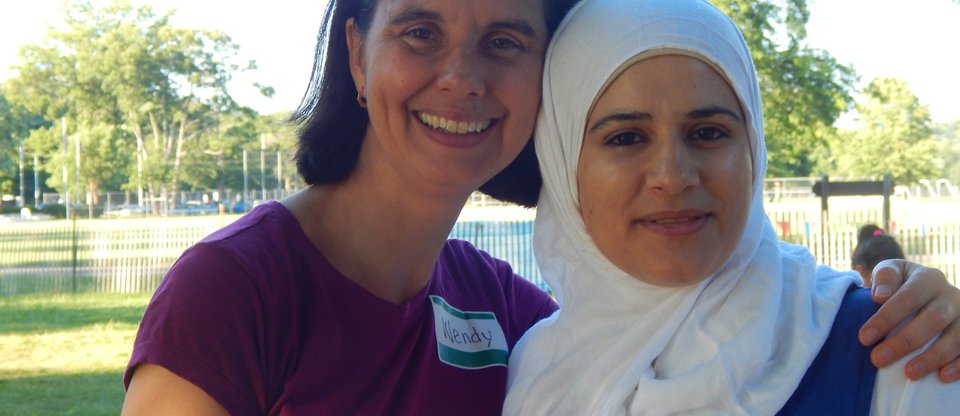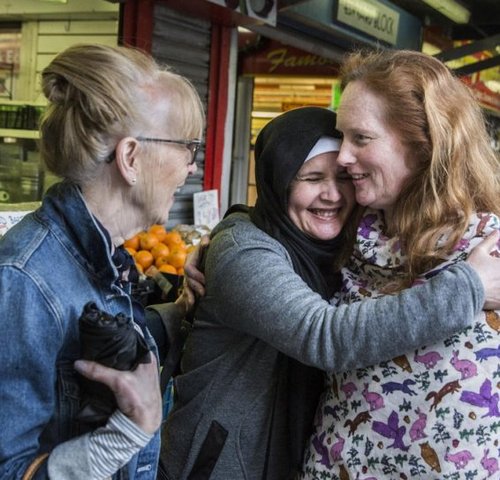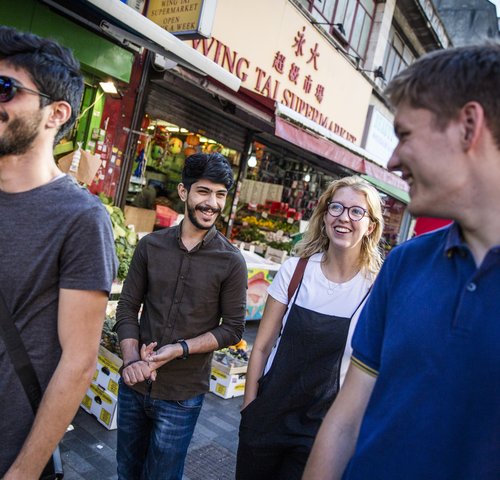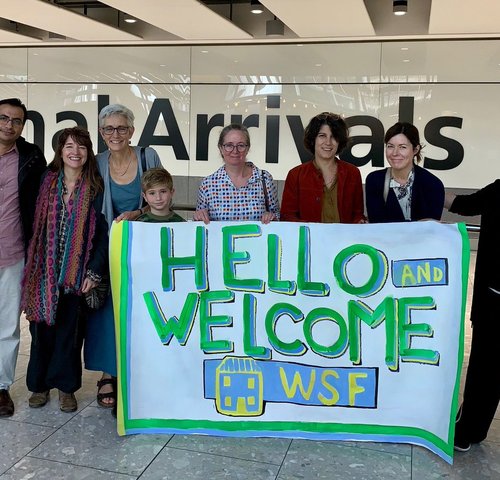Teaching English to Refugees
Teaching English to Refugees

Here at Bath Welcomes Refugees, we’ve been offering English support for nearly 5 years. While we have certainly not got this down to a perfect art form, we have managed to build up a good cache of knowledge and resources along the way. We currently have over 60 volunteer teachers working 1-2-1 and providing group classes and we are eagerly awaiting our first Community sponsorship family. For what it’s worth, here is my advice.
· First, find experienced teachers. I would suggest contacting your nearest Universities and whoever runs a CELTA/ TEFL class in your district. If all else fails, advertise.
· Second, upskill and equip your team. I recommend Future Learn (https://www.futurelearn.com) particularly the courses from Cambridge English and the British Council. They also offer IELTS preparation courses for advanced students.
· Collect as many resources as you can. Libraries often give away old books, and charity shops are also worth a browse. For adults I recommend the ‘Just the Job’ books and other easy readers. We also find the ‘English for Everyone’ course books and ‘Vocabulary builder’ are very approachable.
· For children, Orchard Toys have some good games and there are some excellent play apps such as ‘Phonics Match’. · The online learning platform Little Bridge (https://www.littlebridge.com) gives free access to refugees if you write and apply. · Quizlet (https://quizlet.com/en-gb) and Kahoot (https://kahoot.com) are great sources for putting together games around language.
· There are hundreds of online resources and I’m happy to share the list we’ve put together.
· Read up about refugees – there are many good novels and non-fiction offerings. It helps to understand what they’ve been through and how disenfranchisement can impact on their learning.
· Put together a basic lesson scheme but allow for diverse levels and abilities. I’m very happy to share our ‘Can Do’ statement which plots out the early stages.
· If you have a venue for group classes, consider throwing in a creche, because mothers with young children can find it hardest to access learning.
· If you are teaching in the family homes make sure you have strict policies around boundaries and data protection.
· Encourage self-help with apps such as Duolingo, Drops and Memrise.
· Build up a series of templates to answer teacher enquiries, to advise of reporting and DBS requirements, to base presentations to schools, WI meetings; and forms for Volunteer applications, Volunteer acceptance, petty cash claims and Safeguarding concerns.
· Join a local network of ESOL providers. Sign up for email notifications from groups like NATECLA and Trinity who offer Webinars.
· Above all, don’t expect too much too quickly. Learning a new alphabet is incredibly hard and requires endless repetition. Try learning Arabic with the free version of Duolingo and you will discover this for yourself.
Find a language checklist here.
And a comprehensive list of resources here.


